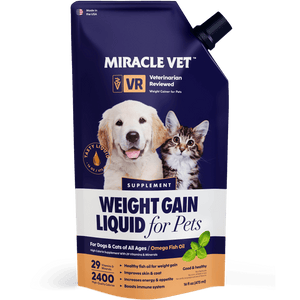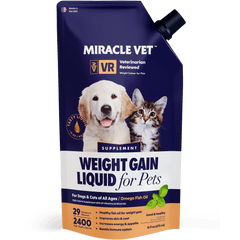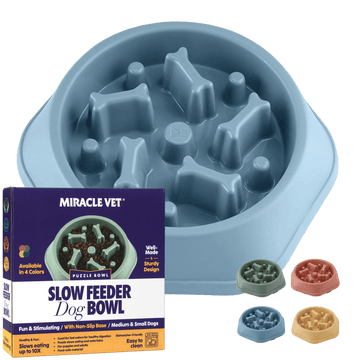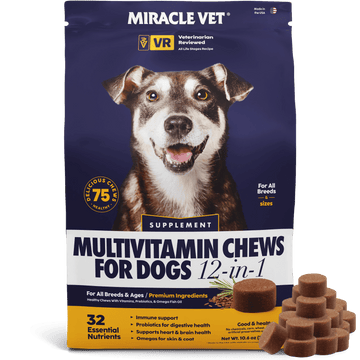Parasites and worms are a common health concern for dogs, and they can cause a wide range of health problems if left untreated. Understanding how pets get worms, the different types of parasites they can encounter, and how to prevent and treat infestations is essential for every pet owner. This guide breaks down everything you need to know to help keep your pets healthy and parasite-free.
How dogs get worms and parasites
Dogs can contract different worms and parasites in a variety of ways. Many infestations occur through exposure to contaminated environments, from a mother dog during pregnancy, or to her nursing puppies. Fleas and mosquitoes can also act as carriers of worm larvae, transmitting parasites like tapeworms and heartworms.
Common transmission methods include:
- Eating contaminated soil, feces, or infected prey animals
- Drinking contaminated water
- Nursing from an infected mother
- Bites from mosquitoes (heartworms)
- Ingesting fleas (tapeworms)
Environmental factors like warm, humid weather, poor sanitation, or heavily trafficked areas can increase the risk of exposure.
Types of worms that infect dogs
Dogs can suffer from several types of worms, each with their own health risks, symptoms, and treatment requirements.
Roundworms
Roundworms are among the most common intestinal worms, especially in young puppies.
How it spreads
- Eating contaminated soil or feces
- Nursing from an infected mother
- Eating infected wild animals
- Direct contact with contaminated environments
Signs and symptoms
- Vomiting (may contain visible worms)
- Diarrhea
- Pot-bellied appearance (especially in puppies)
- Weight loss despite normal appetite
- Dull or dry coat
- Worms visible in stool
Can humans catch it?
Yes. Roundworm eggs can contaminate soil, posing a risk to humans, especially young children playing outdoors. If ingested, the roundworm larvae can migrate through human tissues, potentially causing organ damage or vision loss.
Hookworms
Hookworms are tiny blood-feeding parasites that live in the small intestine.
How it spreads
- Penetration through the dog’s skin (especially paws)
- Eating contaminated soil or feces
- Nursing from an infected mother
Signs and symptoms
- Pale gums (due to anemia)
- Weakness or lethargy
- Bloody or dark tar-like diarrhea
- Weight loss
- Itchy or irritated paws (if larvae entered through the skin)
- Poor growth in puppies
Can humans catch it?
Yes. Hookworm larvae can penetrate human skin, usually causing an itchy rash known as "cutaneous larva migrans."
Whipworms
Whipworms are intestinal parasites that live in the large intestine and cecum, causing irritation and inflammation.
How it spreads
-
Eating contaminated soil or feces containing whipworm eggs
Signs and symptoms
- Chronic diarrhea (often with mucus or blood)
- Weight loss
- Anemia
- General discomfort or straining during defecation
Can humans catch it?
Rarely. Whipworm infections in humans are uncommon, but possible with poor hygiene.
Tapeworms
Tapeworms are segmented parasites that live in the small intestine of dogs.
How it spreads
- Ingesting fleas infected with tapeworm eggs or larvae
- Eating raw or undercooked meat or infected wild animals
Signs and symptoms
- Itching or irritation around the anus
- Scooting behavior
- Visible worm segments in the dog’s stool or around their rea rear (look like grains of rice)
- Weight loss (in severe cases)
Can humans catch it?
Yes, but typically only by accidentally ingesting an infected flea or consuming contaminated food.
Heartworms
Heartworms are transmitted by mosquitoes and are extremely dangerous, living in a dog's heart and lungs.
How it spreads
-
Bites from infected mosquitoes
Signs and symptoms
- Persistent coughing
- Difficulty breathing
- Fatigue or reluctance to exercise
- Weight loss
- Swollen abdomen (due to fluid buildup)
- In severe cases: heart failure
Can humans catch it?
No. Heartworms cannot be transmitted directly from dogs to humans.
Other intestinal parasites
In addition to worms, dogs can also be affected by other intestinal parasites. These aren't worms, but microscopic organisms that infect the intestinal tract and cause digestive problems.
Both coccidia and giardia are spread through contact with contaminated feces, water, or environments. Puppies and dogs with weakened immune systems are especially vulnerable.
Coccidia
Coccidia parasites primarily affect puppies, though adult dogs can be infected as well. They usually contract coccidia by swallowing contaminated soil or feces. While specific symptoms depend on the type of worm, there are common signs that may indicate a worm infestation:
- Watery or bloody diarrhea
- Dehydration
- Weight loss
- Weakness or lethargy
- Poor growth in puppies
Giardia
Giardia is a common intestinal parasite that spreads through contaminated water, feces, or infected surfaces. Dogs that drink from puddles, streams, or unclean water sources are at more of a high risk. Common symptoms for giardia include:
- Diarrhea (sometimes with mucus)
- Weight loss
- Dehydration
- Occasional vomiting
- Gas or abdominal discomfort
How to diagnose worms in dogs
Veterinarians use several diagnostic methods to detect worms in dogs. Contact your vet immediately if your pet shows any of the following signs:
- Worms visible in stool or vomit
- Severe diarrhea or vomiting
- Sudden or unexplained weight loss
- Lethargy or weakness
- Pale gums
- Persistent coughing
- Bloated abdomen
Common diagnostic tools
There are several methods to accurately diagnose worms in dogs. These tools help identify the type of parasite so your dog can receive the correct treatment.
- Stool sample (to identify worm eggs or larvae)
- Blood tests (especially for heartworm detection)
- Imaging (X-rays or ultrasound)
- Physical examination and review of symptoms
Regular check-ups and fecal screenings are crucial for early detection.
Treating worms in dogs
Veterinarians almost always treat worms and parasites with medications designed to target the type of parasite present. In some cases, additional treatments like nutritional support, probiotics, hydration, or lifestyle changes may be recommended to help the dog recover fully. The best treatment for your pet will depend on the specific type of worm, and it's important to consult with your veterinarian.
Common deworming medications
- Fenbendazole
- Milbemycin oxime
- Pyrantel pamoate
- Praziquantel (for tapeworms)
- Heartworm-specific treatments
Treatment plans vary based on the severity of the infestation and the type of worm involved. Some treatments require multiple doses over time.
Supporting recovery with diet and nutrition
- Provide a balanced, nutrient-rich diet
- Ensure constant access to clean water
- Use probiotics to support gut health post-treatment
- Follow all veterinary instructions closely
Preventing worms in dogs
Preventing worms is far easier and less risky than treating an active infestation.
- Regular deworming schedules recommended by your veterinarian
- Year-round mosquito and flea treatment
- Cleaning up your dog’s feces promptly
- Preventing pets from eating raw meat or prey animals
- Providing clean drinking water
- Maintaining good hygiene and sanitation
- Regular veterinary check-ups
Can humans catch worms from dogs?
Yes, certain types of worms like roundworms, hookworms, and tapeworms can infect humans. It happens through contact with contaminated soil, feces, or infected flea larvae.
Prevention tips for humans
- Wash hands thoroughly after handling pets or cleaning waste
- Wear gloves when gardening
- Keep pets on a regular deworming schedule
- Maintain a clean home and yard environment
Can worms spread between pets?
Yes, pets in the same household can share some types of worms, especially roundworms and tapeworms. It's passed through contaminated environments or grooming behavior. It's essential to regularly deworm all pets in your home.
How often should dogs be dewormed?
As a general rule, adult dogs should be dewormed every three months. Preventive medications are an important part of a regular wellness plan for your pets. However, your veterinarian may recommend a different schedule based on your pet's lifestyle and risk factors.
Final thoughts
Understanding worms in dogs is a critical part of responsible pet ownership. Prevention through regular veterinary care, maintaining good hygiene, and administering appropriate medications is the best way to keep your pet - and your family - safe from parasites.
Regular check-ups, prompt treatment, and environmental cleanliness all work together to ensure your pets live a healthy, happy, worm-free life.











